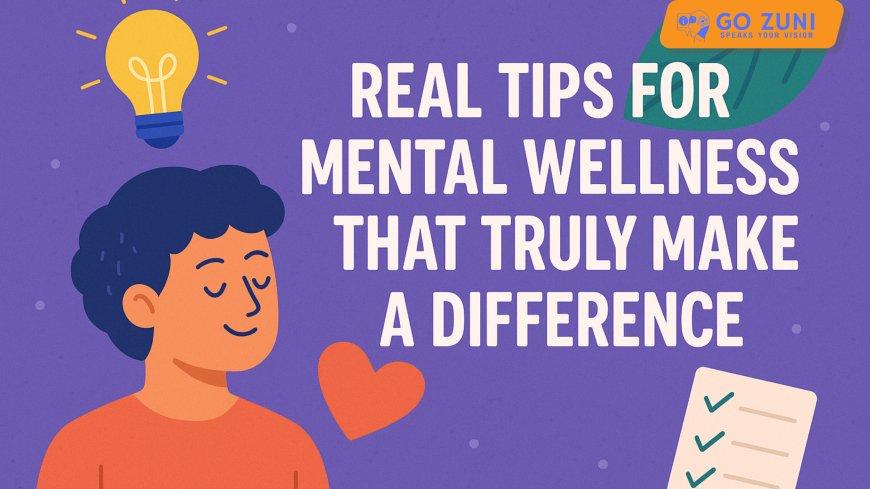How to Use Journaling as a Tool for Mental Wellness

When I first started working in IT, I didn’t think much about mental wellness. I was busy trying to meet deadlines, learn new frameworks, and keep up with caffeine-fueled sprints. But about a year in, something shifted. I wasn’t sleeping well, my motivation was tanking, and my mind felt constantly cluttered—like 40 browser tabs open, none of them responding.
A senior colleague noticed I was spiraling and casually asked, “Have you tried journaling?” I laughed it off at first. Journaling? That’s for writers and poets, not someone debugging JavaScript at 2 a.m. But eventually, I gave it a try—and that simple act of putting pen to paper turned out to be one of the most powerful tools I’ve found for improving my mental health wellness.
Let me walk you through how journaling can help anyone—especially those of us in high-pressure careers like tech—stay grounded, focused, and mentally well.
Why Journaling Works for Mental Wellness
Journaling isn’t just about writing your thoughts. It’s about clearing the mental fog, processing complex emotions, and checking in with yourself regularly. Think of it as debugging your own mind.
When you write down what’s bothering you, or what you’re grateful for, you’re giving yourself permission to slow down and be present. That’s huge for mental wellness, especially when you're juggling deadlines, stand-ups, and surprise production bugs.
Studies show that consistent journaling can:
- Reduce stress and anxiety
- Improve emotional regulation
- Boost memory and cognitive function
- Support treatment for conditions like schizophrenia
No fancy tools needed. Just a notebook, a pen, and a few minutes a day.
Getting Started: Journaling Doesn't Have to Be Complicated
One of the biggest myths about journaling is that you need to write pages every day. Nope. I started with just 5 minutes every morning, jotting down three things:
- What I’m feeling
- What I need to do today
- One thing I’m grateful for
That’s it. Simple. Sustainable. Effective.
Over time, my journal became a space for more than task lists and feelings. It became a mental health wellness checkpoint—a place to reconnect with myself before diving into the chaos of code.
Here are a few styles of journaling you might explore:
- Gratitude Journaling: Write down a few things you’re thankful for daily.
- Stream of Consciousness: No structure—just write whatever’s on your mind.
- Prompt-Based Journaling: Use questions like “What’s draining me right now?” or “What small win did I have today?”
- Mood Tracking: Rate your mood daily and reflect on patterns.
Pick what feels natural. The key is consistency, not perfection.
How Journaling Supports Mental Wellness in IT Work
IT work is demanding. We solve problems all day long—some technical, some interpersonal. And because we often work in isolation (hello, remote life), it’s easy to lose touch with our emotions. That’s where journaling fits in.
Here’s what I’ve noticed personally:
- On tough days, journaling helps me unload mental baggage instead of carrying it into the next Zoom call.
- When imposter syndrome creeps in, revisiting past journal entries reminds me of how far I’ve come.
- On sleepless nights, journaling acts like a mental off-switch, helping me rest and recharge—so I can stay both mentally and physically healthy.
It’s not about solving everything. It’s about showing up for yourself. Even five minutes can make a difference in how your brain and body feel.
Mental Health Is Health—Period
One thing I’ve come to believe strongly is that mental health is health. We talk a lot about healthy health tips in IT—standing desks, hydration reminders, Pomodoro timers—but too often we leave out the mind.
A good journaling practice is just as important as any ergonomic chair or standing break. And for people managing more serious conditions like anxiety, depression, or even schizophrenia, journaling can be a valuable supplement to therapy or medical care.
So if you’re serious about staying sharp, focused, and healthy in your career, don’t overlook this low-tech but high-impact habit.
Final Thoughts: Start Where You Are
If you’re new to journaling, here’s my advice: start small, and be kind to yourself. You don’t need the perfect notebook or Instagram-worthy handwriting. Just start.
Journaling has helped me weather burnout, navigate big career decisions, and build a stronger connection with myself—and I genuinely believe it can do the same for you.
Your journal is a judgment-free zone. It’s a safe space to explore your mind, support your mental wellness, and stay physically healthy while navigating the fast-paced world of tech.
So tonight, instead of doom-scrolling, try this: grab a notebook, set a 5-minute timer, and just write.
Your future self will thank you.
- Art
- Causes
- Crafts
- Dance
- Drinks
- Film
- Fitness
- Food
- Games
- Gardening
- Health
- Home
- Literature
- Music
- Networking
- Other
- Party
- Religion
- Shopping
- Sports
- Theater
- Wellness


